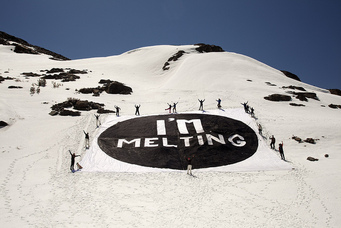|
As much progress as we have made to safeguard our natural heritage and defend our environmental resources, our present situation seems grim and the future is uncertain, particularly with the twin perils facing us in the domestic political arena and the dramatic consequences of world climate change. I am reminded of the fact that, despite our many gains, our situation is not all that different from what U.S. President Franklin D. Roosevelt observed more than 75 years ago when he dedicated the new Great Smoky Mountains National Park in an address at Newfound Gap, on the North Carolina – Tennessee border, on September 2, 1940: We used up or destroyed much of our natural heritage just because that heritage was so bountiful. . . . We slashed our forests, we used our soils, we encouraged floods . . . all of this so greatly that we were brought rather suddenly to face the fact that unless we gave thought to the lives of our children and grandchildren, they would no longer be able to live and to improve upon our American way of life. In 1940 President Roosevelt and the country were preparing for entry into World War II. Even while preparing for war, FDR’s favorite slogan was, “Conservation is a basis for permanent peace.” He was fundamentally concerned for America’s environmental “infrastructure” and future security and well-being.
Now worldwide climate change--largely human caused--is threatening us. Elsewhere on our ConservationSouth website, you will find links to numerous resources that may help in the effort to respond and adapt to climate change. For further inspiration, we direct you to Bill McKibben's August 2016 article in the New Republic, “A World at War.” McKibben, Schumann Distinguished Scholar at Middlebury College and co-founder of the climate group 350.org, has issued an important call to arms. --Chuck Roe, SCP President
0 Comments
Leave a Reply. |
When we see land as a community to which we belong, we may begin to use it with love and respect.... Conservation, viewed in its entirety, is the slow and laborious unfolding of a new relationship between people and land." There is in fact no distinction between the fate of the land and the fate of the people. When one is abused, the other suffers. From the PresidentSCP President Chuck Roe looked at land conservation along the route of John Muir's "Southern Trek." About ViewpointThis blog offers views of our Board and partners. We invite your viewpoint on the following questions: Archives
April 2024
Categories
All
|


 RSS Feed
RSS Feed